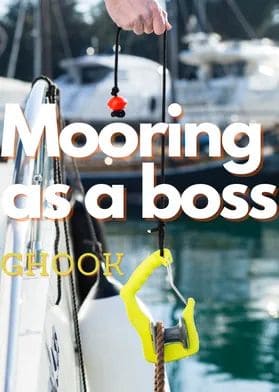Sale of Marine Generators
On this page you can find and buy a generator for your boat. We offer products from the best manufacturers with a quality guarantee.
We deliver to almost anywhere in the world. And our employees are ready to answer all your questions before purchasing and help you choose the right generator.
What Are Generators and What Are They Used For?
If, while staying at the berth, you can use a shore power cable to recharge the batteries and power the onboard electrical systems, then outside the marina equipped in this way we will need our own “power station”. The stationary engine of a boat or yacht, of course, is already supplemented by a generator; an outboard motor can also produce electric current, but in most cases the tasks can only be solved with the help of an autonomous generator equipped with its own internal combustion engine - gasoline or diesel.
What other types of generators are offered by marine equipment manufacturers?
Types of Marine Generators
In this section topRik marketplace experts offer an overview of the most popular types of generators for yachts and boats.
Diesel Generators
The main advantages of diesel generators are:
- high performance and reliability;
- efficiency and environmental friendliness ;
- ability to work for long periods of time without breaks;
- ease of maintenance and long service life;
- good performance under heavy loads and extreme weather.
Diesel generators are great for long voyages and long-term use. Due to their characteristics, they ensure stable operation of all ship equipment.
Gasoline Generators
One of the main advantages of gasoline generators is their ease of maintenance. To start and operate the generator, only gasoline is required, which is easily available at any gas station. In addition, gasoline generators can run for long periods of time without stopping, making them an ideal choice for long sailing trips.
However, gasoline generators are not without some disadvantages. First of all, they are noisier compared to other types of generators, which can create discomfort while relaxing on a yacht. In addition, gasoline has a tendency to oxidize and may lose its properties during long-term storage, which can lead to problems when starting the generator.
Gas Generators
One of the main advantages of gas generators is their low noise and vibration levels. They also have high efficiency and low emissions.
An important factor is also the safety of using a gas generator. It must be equipped with automatic control and protection systems, such as emergency shutdown in case of insufficient gas pressure or overheating.
Gas generators are reliable and have a long service life. They allow you to ensure a stable power supply on board the ship, which is especially important during long trips or while in remote areas.
But there are serious problems with using gas generators on small ships:
- limited selection of available models;
- the possibility of interruptions in gas supplies;
- the need to use special equipment for gas storage.
Turbine Generators
For obvious reasons, these beasts are used only on large ships and tankers, so there is no need to discuss their features here.
Wind Generators
In light of recent trends towards reducing harmful emissions into the seas and oceans, it is worth mentioning such an alternative source of energy as wind generators. Along with solar technology they are increasingly taking a position in the “construction” of ship’s energy circuit. But their performance largely depends on the area of the blades, so not all yachts can afford to run on wind energy.
Which Generator to Choose and What Criteria to Focus On?
The main difference between an autonomous generator and a standard one is that it is capable of producing high-power alternating current, which is sometimes indispensable on board (for example, if there is an air conditioner).
You need to start the selection of the generator system you need by choosing its output first. To do this, you need to calculate the power consumption of all your devices on board the boat and add about 20 - 30% to this value. That is, we choose a generator in such a way that it does not constantly work at full capacity, exhausting its resource. When calculating, use indicators not of operating, but of peak consumption of electrical devices. The fact is that at the moment of start-up, some of them (primarily electric motors) briefly consume significantly more current before they reach normal operating mode.
If daily work under load is required 365 days a year, our choice would be low-speed generators with a rotation speed of up to 1500 rpm, with a power of 8 to 30 kW. Below, topRik experts will consider the most important criteria that should be followed when choosing a generator for a yacht. At the same time, we tell you what types of generators the marine industry offers depending on these categories.
Petrol or Diesel?
As a general rule, it is best to have the generator powered by the same fuel as the main motor or motors. Visible advantages - no need for separate fuel tanks, elimination of possible errors when refueling, one set of fuel consumption metering and monitoring devices. Although there are some subtleties - sometimes this rule is worth giving up.
The advantages of portable gasoline generators are their light weight and relatively low price. From the point of view of reliability and service life, cheap generators, made mostly in Asia, correspond to their low price, because miracles do not happen. Their power, as a rule, does not exceed 5 kW; older models are heavier, more expensive and lose their advantages in price and during transportation. But if you have a small boat with gasoline outboard motors, this option is suitable for you.
Generators with diesel engines are more widely used on ships. They are more efficient, less noisy and have a significantly longer service life, so it often makes sense to install them on boats with a gasoline propulsion system.
Water or Air Cooling?
A very important criterion in assessing generator performance is cooling efficiency. In almost all cases on boats, the generator motor itself is liquid cooled, but what kind of cooling is used in the alternator? Using air cooling for this, which is much simpler and cheaper to produce, we immediately face serious technical issues. The first of them: where is the correct location for the diesel generator?
In the engine room, at temperatures above 35 degrees, diesel generator power is lost, approximately 2% for every 5 degrees, that is, at a temperature of +55 °C, power losses can reach 10%. This problem can be solved by supplying cold air in a large volume.
But sometimes it is very difficult to install separate air ducts inside the boat and install additional electric fans to supply cold outside air and remove heated air. You also need to think about where it is safe to install air intake grilles on the open part of the boat so that they are not flooded with seawater and rainwater.
It makes much more sense to use water cooling on boats and yachts. It is the most correct from a technical point of view, has higher efficiency, and reduces installation time. And you have to pay for the initial complexity of the installation, but only once. In this case, a double cooling circuit for the generator and engine is used. The alternator always operates at a comfortable temperature and provides more stable output parameters of voltage, frequency, and currents. Thus, we will extend the life of absolutely all electrical components of the vessel’s network.
But with all the options, the main and only correct solution will be the presence of a heat exchanger in the cooling circuit. At the same time, we solve another problem, because sea water with a high content of salts and suspended matter increases the danger that the metal may undergo galvanic corrosion and the generator may simply become clogged.
Difference in Rotor Speed
Generators also differ in rotor speed. High-speed ones with an operating speed of up to 3000 rpm are lighter, but also noisier. It is better to install them on small boats with maximum consumer powers of up to 10 kW. These models are intended for amateur use and have a good ratio of performance characteristics to the price of the equipment. But their service life before major repairs is half as long and ranges from 5,000 to 10,000 operating hours. It is believed that the usual operating time of a diesel generator on an amateur boat is 500 engine hours per year.
Where daily work under load is required 365 days a year, our choice is low-speed generators with rotation speeds up to 1500 rpm. Their powers start from 8 kW and reach 30 kW.
The third, relatively new type of generators with “floating” engine speeds is the most interesting to us. Modern genverter systems (a composite term for “generator” and “inverter”) have taken only the best from conventional standard models. Generators with variable speed are lighter, have compact dimensions, increased service life, speed ranging from 1200 to 3600 rpm, an ideal sine wave and, finally, an attractive price. The body of the combined device contains a generator, an electronic conversion unit, an inverter, and even a charger for the starting battery.
Noise Level
From technical details, let's try to move on to familiar household properties, such as the level of noise and vibration, which is sometimes decisive for us when buying a generator. European manufacturers spend quite a lot of time on tests in an acoustic chamber when setting parameters for each generator model, use combinations of various metal alloys, multilayer plastics, latex additives, and select the stiffness of shock absorbers for the DG frame, but make sure to check out the dB measurements before the purchase anyways.
Ease of Use
Now let's move on from noise to comfort and ease of use. Not a single modern and complex complex can do without monitoring and remote control devices. Ask your generator set supplier what their standard remote panel can control from the following:
- engine coolant temperature;
- exhaust gas temperature;
- engine oil temperature;
- oil pressure;
- starter battery charge level;
- output voltage level 230 V/400 V AC;
- output voltage frequency 50 Hz;
- pressure drop in the cooling system;
- pressure drop in the oil system;
- output power.
The generator must, simply must, shut down immediately when any of these functions are not within normal limits. All limit parameters are programmed at the factory by the manufacturer. You don't even need to know about the threshold values that are built into smart electronics, but maybe this will one day save your boat and your precious life.
When purchasing a generator, be sure to ask the supplier for the complete set. Many manufacturers are disingenuous at the initial request, and then demand additional payment for a soundproof casing, a remote control panel, a connecting cable, for an electric starter, for vibration mounts, for an autostart unit, and so on. With this reminder, we want to protect you from disappointment during the purchase, long waits for ordered options and unexpected expenses.
And to avoid such troubles, immediately contact the topRik marketplace - our experts, who are experienced sailors with knowledge of all marine equipment for yachts and boats, will select a generator model that exactly matches the characteristics of your vessel and your requirements.


